Following The Film Stage’s collective top 50 films of 2024, as part of our year-end coverage, our contributors are sharing their personal top 10 lists.
I’ll be blunt: it wasn’t a good year for films, or at least for me it wasn’t. The following ten films and five honorable mentions, while fine to very good, represent a step down from what 2023 offered. Part of this is due to an industry impacted by two strikes in 2023 that cancelled or postponed many productions. Part of it is personal, in that I couldn’t see as many films as I’d like in 2024. And part of it has to do with the large amount of mediocrity I did see, of films that lacked risk and imagination. A lot of movies preferred to ape their influences rather than build off of them, and in turn coddled viewers with familiarity. By the end of this year I was begging for a film to shake things up rather than lull me to sleep.
And what about the festival circuit, where many of the best films of the year tend to premiere? In my 2023 write-up, I outlined the grim picture being painted: layoffs, financial losses, political pressures, and closures that further compromised spaces meant for freedom of artistic expression. In 2024, amid a turbulent political environment around the world, these festivals didn’t meet the moment as much as they paid lip service to it and hoped no one would tell the difference.
Sundance celebrated all the trans artists in its programme while staying mum about anti-trans legislation being pushed by Utah’s state government, as they didn’t want to ruffle the feathers of their host state who provides financial support. The Berlinale saw a show of support for Palestinians by many filmmakers, guests, and juries, only to be followed by embarrassing condemnations from the German government. And Cannes showed that it’s only interested in using its immense power and influence to quash any attempts at dissent that dare to threaten its good time. If festivals worry about their obsolescence, they have a funny way of showing it.
I hope that 2025 brings about more demand and action from these institutions. Over the years my thinking has shifted from the films to the spaces they inhabit, who creates those spaces, and who has the influence to change them. If organizations wish to posit themselves at the forefront of artistic freedom, or as representatives for bold, artistic visions, someone should hold them to account other than the ones holding the checkbooks. The only way we can hope to make things better is to envision and ask for it, or to seek it elsewhere.
Here are my top 10 films of 2024 based on premiere date rather than US release, although most of these films are either out already or will get released over the next several months.
Honorable mentions: The Room Next Door, Ick, Good One, Afternoons of Solitude, Oddity
10. Small Things Like These (Tim Mielants)
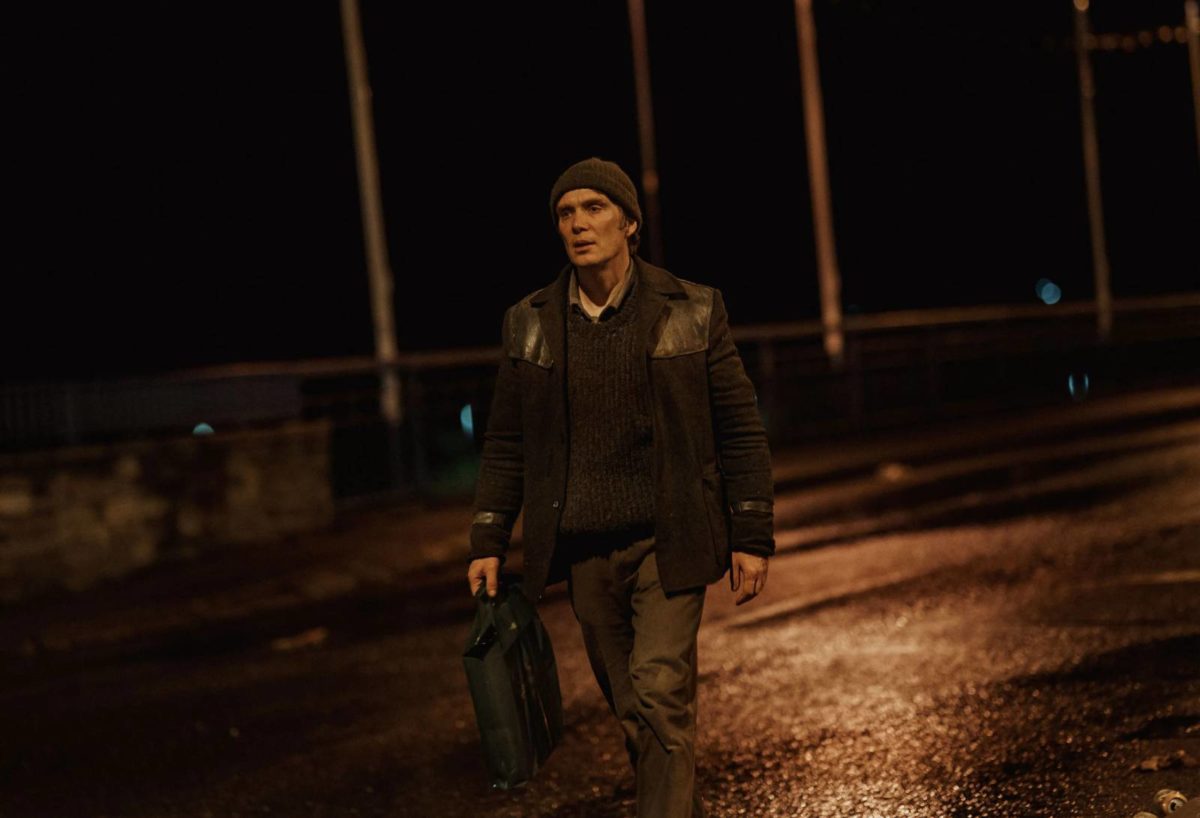
Funny how, in the same year Cillian Murphy wins the Oscar for Best Actor, he gives a better performance in a different film. Tim Mielants’ Small Things Like These has Murphy (who also produced) playing a husband and father in 1985 Ireland grappling with his town’s convent being a part of the Magdalene Laundries. It’s a shameful part of Ireland’s history that went on for decades, where the Catholic Church imprisoned innocent girls, abused them, forced them into indentured servitude, and stole their children to give them up for adoption. It’s more or less an open secret in town, with most people turning a blind eye to it to avoid being targeted by the Church.
I didn’t expect to think so much about Jonathan Glazer’s The Zone of Interest during Small Things Like These, but both films tackle compartmentalization from different places. Glazer’s film looks at the Holocaust from the Nazi’s side, sapping out almost all humanity to communicate his message through a series of grim exercises, forcing viewers to search each frame for hidden atrocities like Where’s Waldo?: Genocide Edition. Mielants looks at a different historical example of a systemic horror and approaches it with compassion, as we watch Murphy’s character confront a problem far bigger than him and, rather than attempt the impossible in finding a solution, comes up with an answer for himself. If The Zone of Interest raps viewers on the wrists and makes them go sit and have a think, Small Things Like These finds grace in one’s ability to resist. Even the smallest crack in a corrupt monolith is better than nothing at all.
9. Smile 2 (Parker Finn)
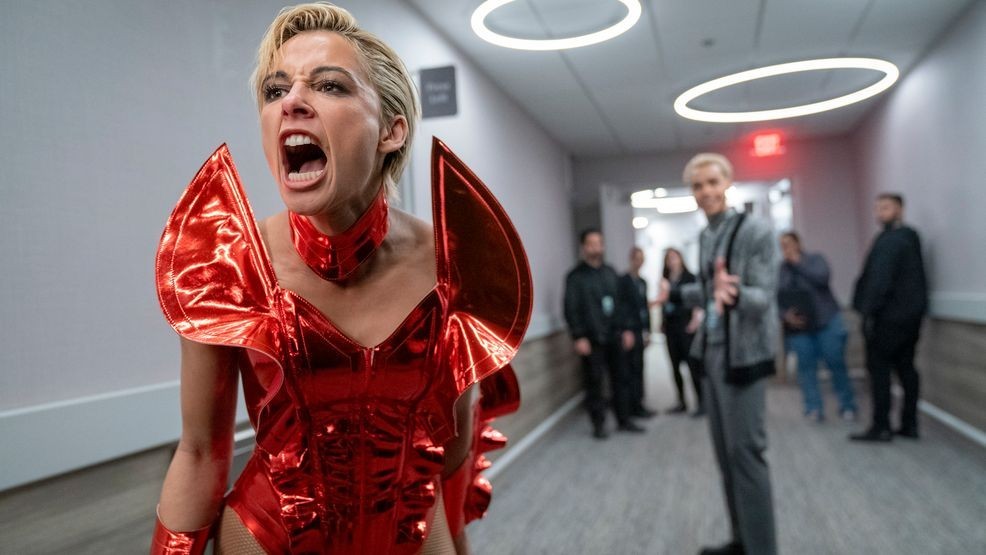
Parker Finn’s Smile went from a film meant for streaming to a surprise box office hit, earning over $200 million worldwide. That success gave Finn a sequel with a bigger budget and, with those extra resources, he chose to take a mulligan. He adapts the structure and story of Smile down to identical story beats, this time showing what happens when the film’s curse makes its way to a pop star mounting a comeback tour. While the do-over didn’t work for everyone who saw the first film, as someone who found Smile flawed I welcomed Finn’s reworking to fully realize the potential of his high concept horror.
Part of why Smile didn’t fully work was because it doubled as one big red herring, leaning into tired tropes of overcoming grief and trauma only to reveal that none of it mattered; the curse was nothing more than a parasitic demon that preyed on the weak, consuming the minds of those it infects before it transfers to a new victim. Smile 2 ditches that baggage while scaling everything upward. It’s leaner and meaner, with bigger setpieces, a great performance from lead Naomi Scott, more stylistic tricks up its sleeve, aggressive jump scares, and a gleeful, mischievous quality that’s borderline sadistic (let’s not forget the end credits remixing Scott’s cries of anguish into laughter!). Not everyone will enjoy Smile 2’s willingness to stand firmly on the side of its villain rather than its victims, but Finn owns it with such panache he walks away with the honor of making 2024’s best horror film.
8. Vulcanizadora (Joel Potrykus)
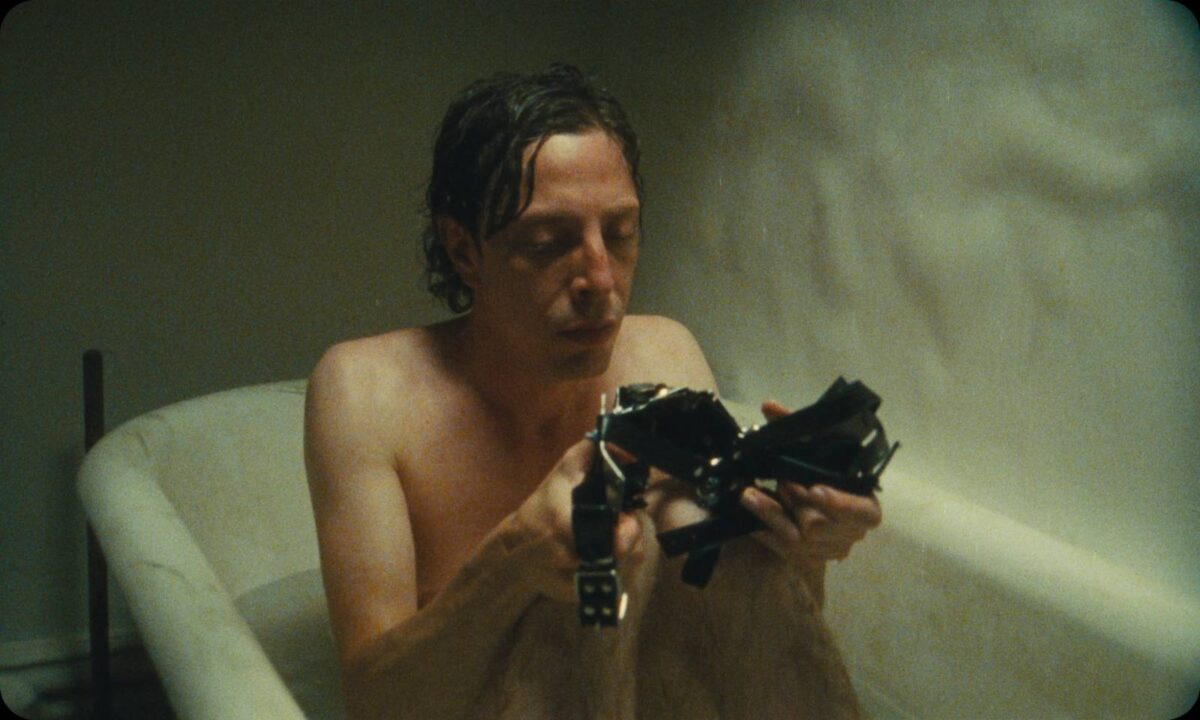
I was able to write a bit on Vulcanizadora when I was lucky enough to interview director Joel Potrykus earlier this year, so I’ll use this space to talk about something a bit more big picture. It’s unfortunate there are less filmmakers like Joel Potrykus working today. It was so long since I saw a film by him that it felt nice to be reacquainted with the roughness and discomfort of his work, and of a director willing to take risks, see them through, and have viewers take what they may from the results.
Filmmakers like Potrykus still exist. They haven’t disappeared or gone away. It’s just harder for them to make films, to get them seen, platformed, and celebrated. The major film festivals that used to provide space for these kinds of works have changed over the years. Development labs, the various hoops and hurdles to obtain institutional grants/financing, and even festival programmers appear to prefer removing the chance of encountering anything that might be too prickly. Vulcanizadora is the kind of personal and rebellious film I’d like to see more of, and the way its qualities stick out compared to other festival fare from 2024 serves as a reminder of how much smaller the space for films like it have gotten.
7. Rumours (Guy Maddin, Evan Johnson, and Galen Johnson)
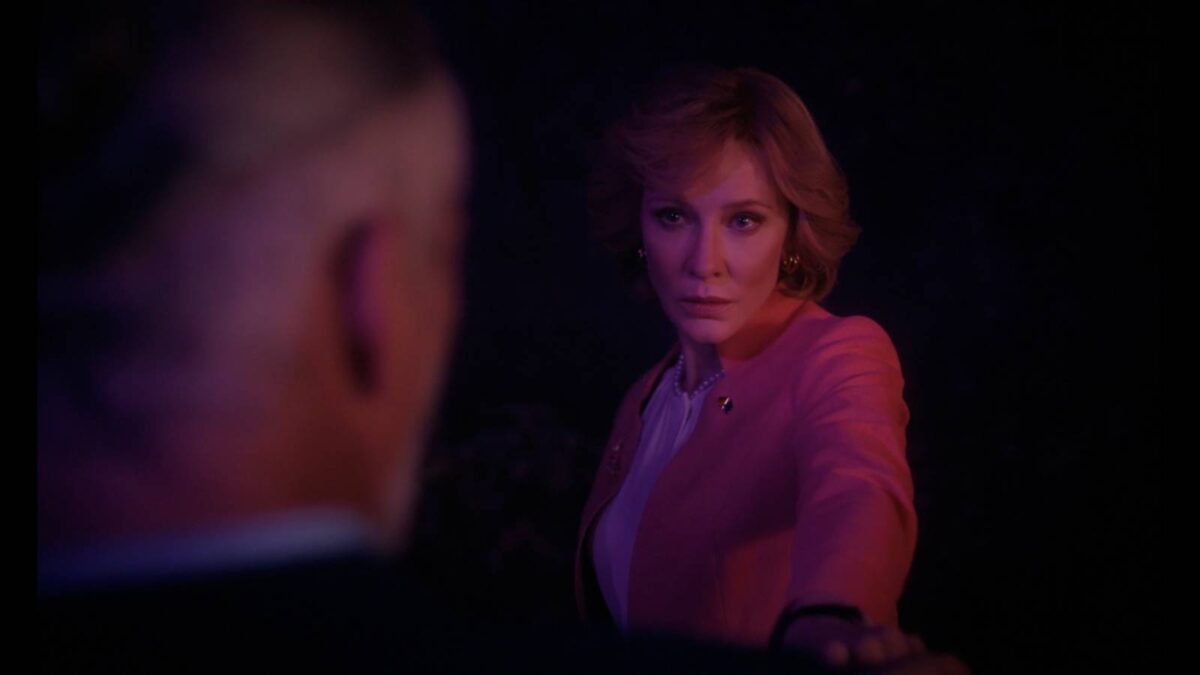
The world leaders of the West––in this case the heads of state of the G7––are all essentially stupid, useless, and ineffective in the face of an actual crisis. If one, or in this case three, were to satirize these people, how would they approach it? Is there a point in creating something smart and incisive about powerful people who are anything but? Why not give these people the kind of satire they deserve?
That’s the central conceit behind Rumours by Guy Maddin, Evan Johnson, and Galen Johnson, and understandably not everyone was on board with it. I had a great time with the film myself, which I see as a satire in anguish. It’s set during a useless summit to release a useless statement, which then gets interrupted by inexplicable events that form an existential threat to humanity. Our leaders, from Cate Blanchett’s goofy German Chancellor to Charles Dance’s US president with a British accent, and Roy Dupuis’ fuckboy Canadian Prime Minister, can do nothing but flail their way to some sort of resolution. Maddin and the Johnsons do what comedians do, for better and worse: find laughter through it all. And what else can you do on the brink of oblivion but let it all go and laugh it up? You might as well, given what’s to come.
6. Between the Temples (Nathan Silver)
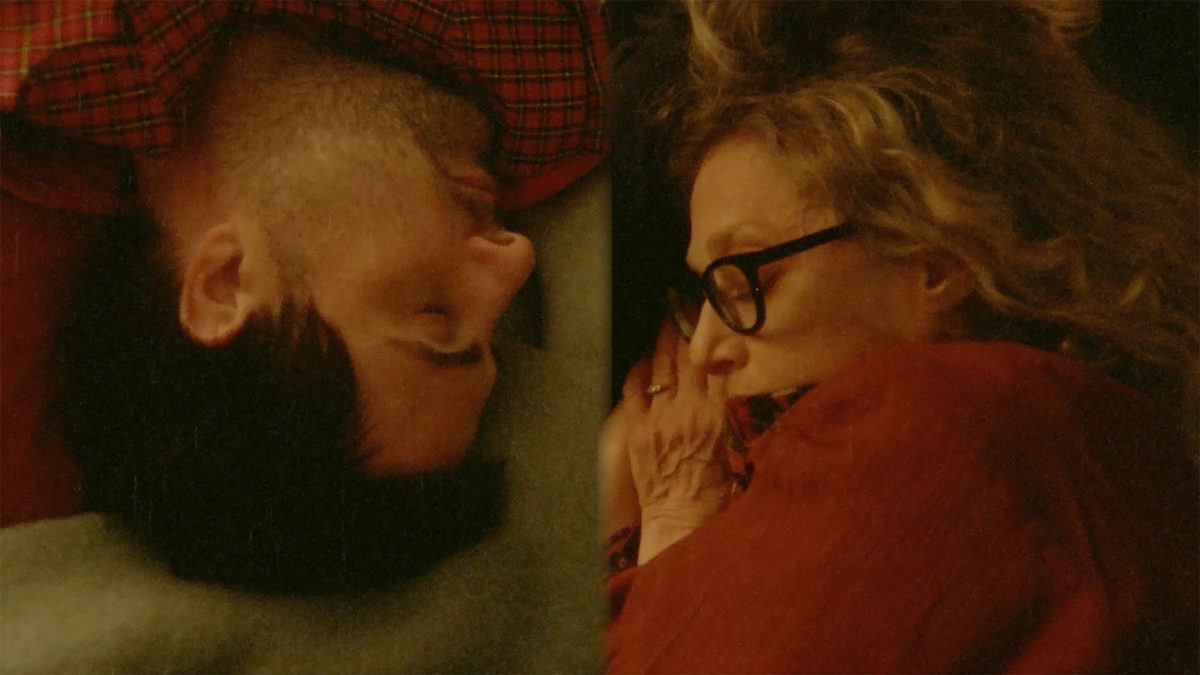
One of my favorite things to happen in 2024 was something I would have never imagined almost a decade ago: the director of Stinking Heaven would end up making a film released by Sony Pictures Classics and earning over $2 million at the box office. It’s a welcome success, and one that didn’t come at the expense of Silver compromising himself either.
His story of a grieving cantor (Jason Schwartzman) bonding with his grade school music teacher (Carol Kane) as she prepares for a (very) late bat mitzvah can get equally funny and stressful. We watch Schwartzman’s character wade through the mud of grief, falling over and embarrassing himself while those around him watch and get splattered by the mess. Silver doesn’t judge or necessarily make anyone the butt of a joke. His comedy comes from a place of understanding the painful and necessary parts of going through it and the roles that faith and community can play in that process. It’s also rare to see a feature comedy this funny, endearing, and all-around good come out from the last several years.
5. Anora (Sean Baker)

I’ll admit, as a fan of Sean Baker’s films, Anora isn’t necessarily my favorite of his for reasons I won’t bother detailing here (this is a celebratory piece, after all). But Sean Baker is a very good director, and even when he’s operating on a broader level his skills still outshine almost all of his contemporaries. Just take the film’s centerpiece, a half-hour or so sequence that kicks off the film’s chaotic second half. After word of the wedding between Anora (Mikey Madison) and Ivan (Mark Eydelshteyn) reaches Ivan’s oligarch parents, they freak out on Ivan’s godfather/handler Toros (Karren Karagulian) who must clean up their mess with the help of two lackeys.
What looks like a situation that’s about to turn violent instead turns sideways. Shouting matches ensue, the two henchmen fumble their way through everything, Anora fights back, Ivan flees, and Toros shows up to witness the carnage. Baker lets the scene escalate naturally while subverting expectations, clearly lays out each character’s motivations, balances comedy and tension perfectly, and never loses sight of the bigger picture that none of these people want to be here were it not for the terrifyingly rich and powerful people demanding it.
This is the strength of Baker as a filmmaker. It’s his ability to create stories and moments that never feel contrived, and where the politics and themes develop organically out of the story. Its accolades are deserved, and Anora is one of the most flat-out entertaining films to come out of 2024.
4. Rebel Ridge (Jeremy Saulnier)
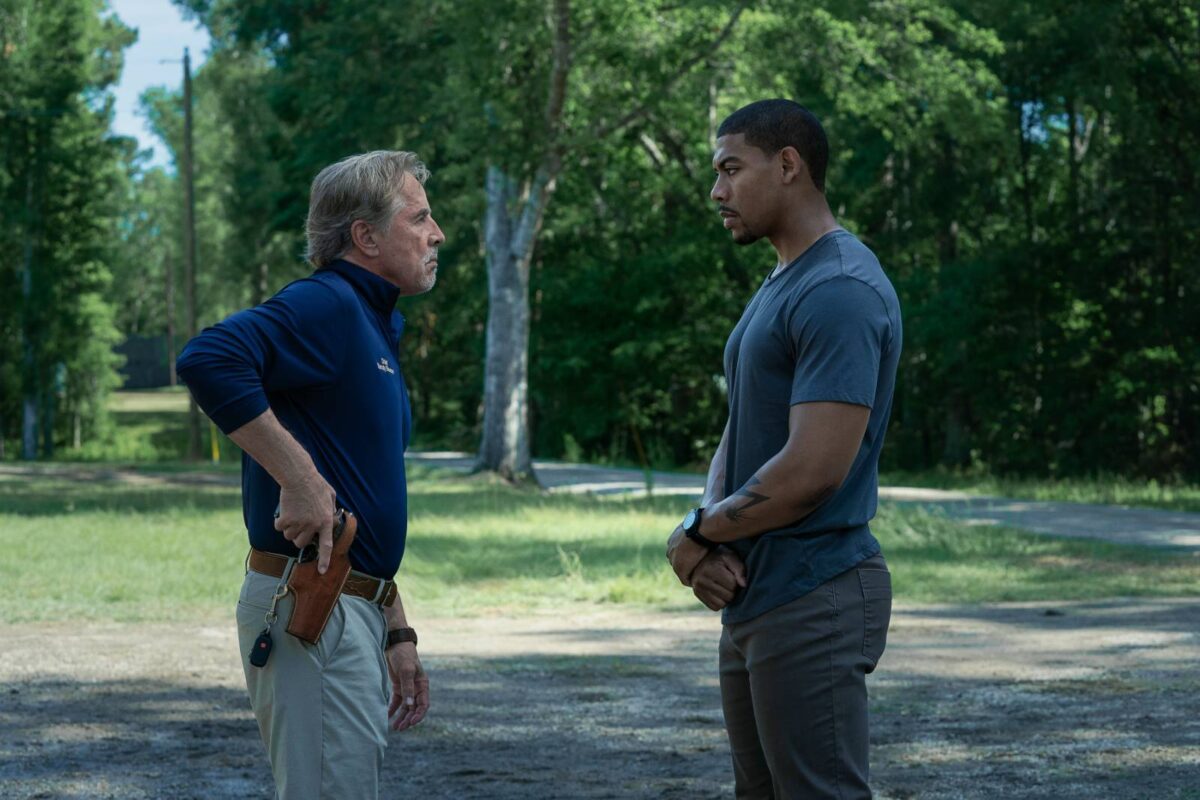
After the misfire that was Hold the Dark, Jeremy Saulnier returned to form and then some with Rebel Ridge, although you might have missed it due to Netflix’s “day and date and shrug” release strategy. Saulnier drops viewers right into his updated take on 70s and 80s action thrillers, where a veteran (Aaron Pierre) faces down a corrupt, unchecked police force in a small town and discovers a larger conspiracy within the community.
It’s a taut, propulsive film, and easily the best full-blown genre effort of the year because of how Saulnier tweaks the form he’s mastered over the years. Some might see the plot’s inclusion of more contemporary hot-button issues like civil asset forfeiture and the opioid crisis, along with Pierre’s former Marine using non-lethal force, as a “softening” or liberalization of an exploitation film. I saw these choices as Saulnier challenging himself to adapt the classic David v. Goliath conflicts with changing times, much like the police force updates and refines its corrupt methods to maintain their control. In other words, it’s the kind of thing one should want to see from a filmmaker: growth.
3. Hard Truths (Mike Leigh)
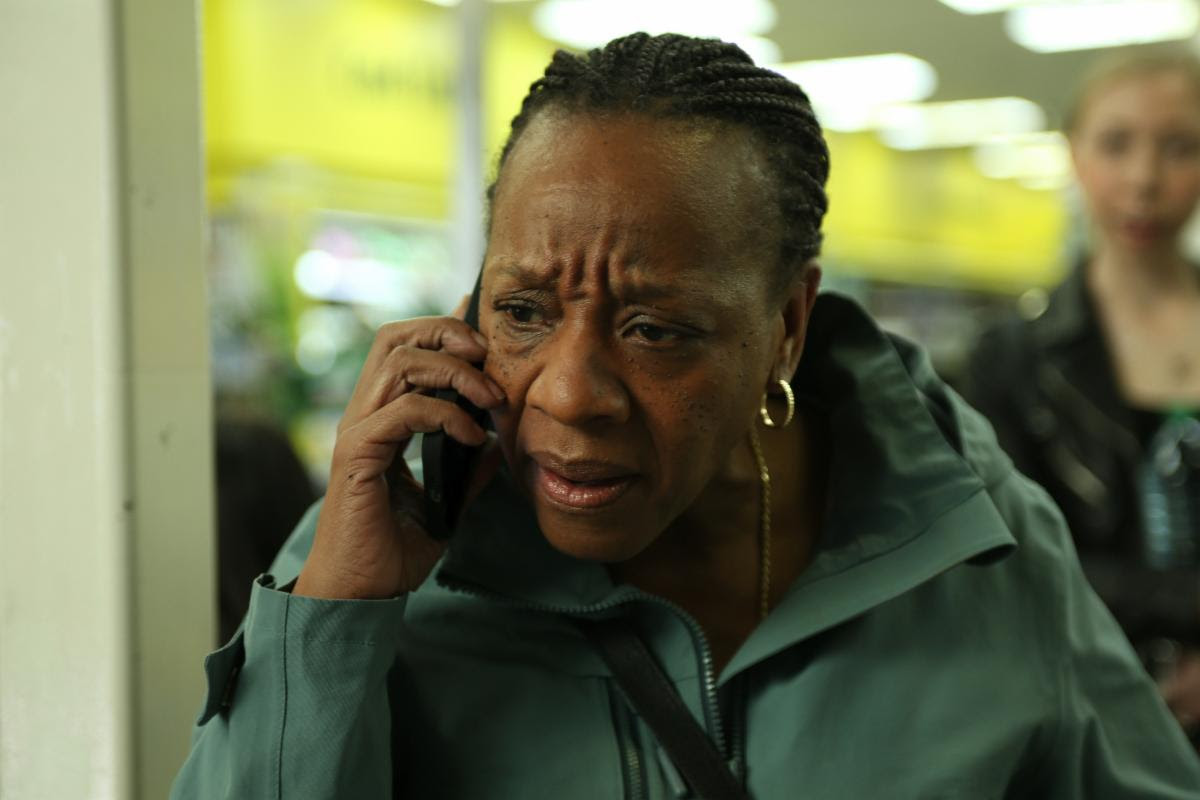
After its premiere at the Toronto International Film Festival, word spread that Mike Leigh’s Hard Truths was rejected by Cannes, Venice, and Telluride, all film festivals that helped establish and support Leigh as one of the world’s pre-eminent filmmakers. If it’s true, the joke writes itself: these festivals want nothing to do with “hard truths.”
And why would they bother with a film like this, given the kinds of films they like to showcase? There’s barely any plot, no sellable genre angle, only one internationally recognized star, an abrasive tone that eventually gives way to the bleak, despairing core hiding underneath it, and no resolution to any of its conflicts. Hell, there isn’t even the sort of palatable “ambiguity” people love to eat up in a film like Anatomy of a Fall. Leigh and his frequent collaborators, including the likes of actors Marianne Jean-Baptiste and Michele Austin (giving two incredible performances that will likely get overlooked), see value in the pain and messiness of existence. It’s why Hard Truths might be the most human film of the year in its unflinching look at people in pain, with no real understanding of what that pain is or how to treat it.
2. Caught by the Tides (Jia Zhangke)
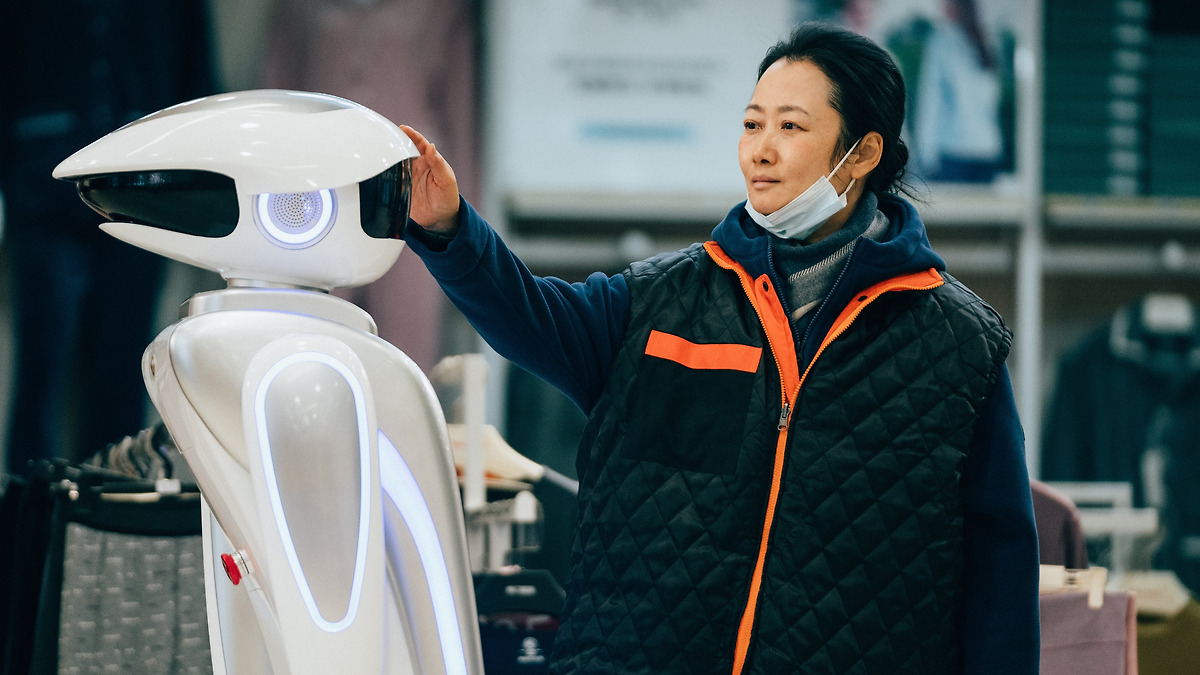
It’s difficult to talk about Caught by the Tides, especially after having seen it only once in a less than forgiving festival environment. It’s difficult to find a place to start with something so dense and staggering. Those familiar with the film already know the story of its creation. Jia Zhangke filmed Zhao Tao in various scenes over the last two decades while working together on his features with no defined goal in mind. The period of lockdowns due to the Coronavirus pandemic had him revisit the footage, ultimately editing it into an experimental narrative with a final act shot recently to tie everything together.
The result is a documentary, a love story, and an essay film rolled into one, taking on an amorphous shape where the film can slip into either form at any second. It’s an evolution, or maybe the culmination of Jia’s films tackling the rapidly changing landscape of his home country and the people at the mercy of it. It’s also a literal and figurative excavation of memory and history, with much of the older footage edited to evoke the sensation of recalling the past. It all makes the final act, where Jia settles into the present and his characters find some form of closure, feel like you’re getting a wallop more than two decades in the making.
1. Misericordia (Alain Guiraudie)
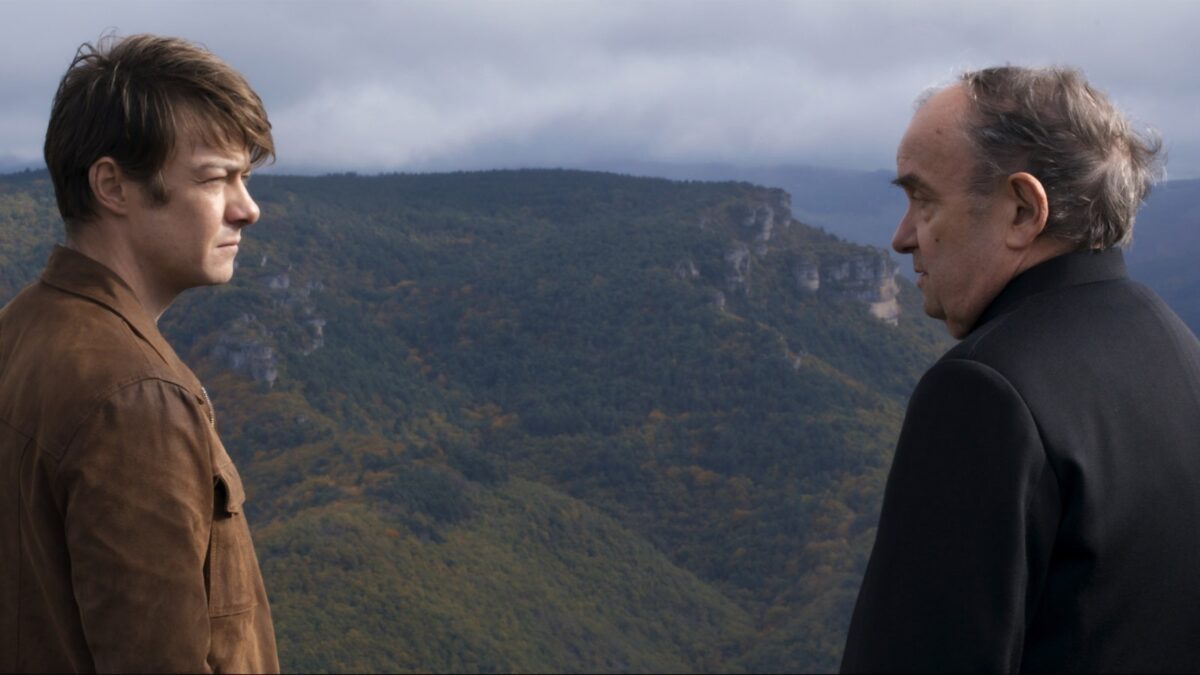
Alain Guiraudie understands the ways desire and transgression play into and against each other, the tension that builds between them, and the thin line between intimacy and violence when those tensions boil over. He also understands how these emotions can shape an environment like the pastoral village where Misericordia takes place. When Jérémie (Félix Kysyl) travels back to his hometown after his former boss dies, Guiraudie takes no time to establish a tacit relationship between him and the townspeople. There’s a balance to be maintained and things left buried; Jérémie’s presence threatens to dig it all up.
All of that aforementioned tension comes to a head soon enough, and in the aftermath Misericordia shows just how much the villagers, and especially the town’s authority in the form of their local priest, will lie, compromise, and rationalize to keep up appearances. One of the film’s most pivotal moments occurs when Jérémie speaks to the priest in a confession booth, and it’s only in this dark, cramped space where disturbing truths spill out from the priest to Jérémie. It’s in this moment where Guiraudie upends the plot and its genre tropes altogether, and we realize the complex web in the town that Jérémie has unwittingly trapped himself within. Watching Misericorida this year felt like a breath of fresh air compared to most of the other films I saw in 2024. It reminded me of how great films can surprise, entertain, unsettle and, most of all, linger long after they end.
